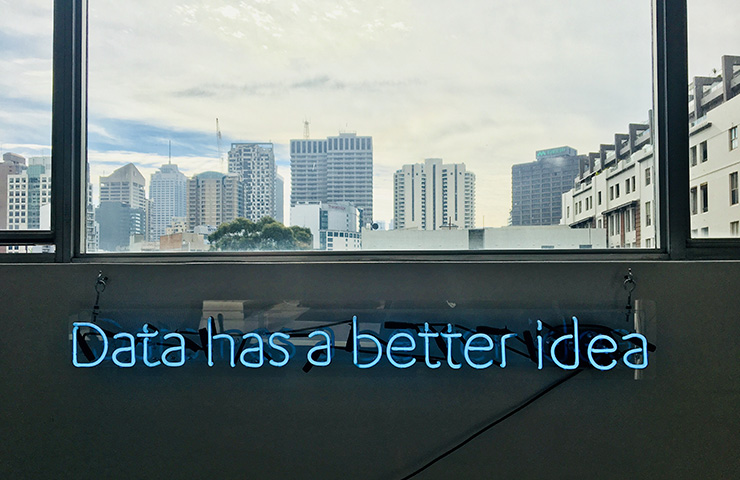02/09/2021
AI has and will continue to make great leaps in terms of efficiency and scope. But many professionals fear the integration of this technology will put their jobs at risk. In this article we explore AI’s place in businesses and how we as humans can expect to work and live alongside this groundbreaking development.
It’s no secret that artificial intelligence has earned its seat at the table. It continues to change the lives of the public, with innovative technologies and applications being released daily.

Precarious speech recognition software have become reliable virtual assistants, and location-mapping services are based on both traffic history and real-time conditions.
The global population’s trust in AI technologies is growing exponentially: we use them increasingly frequently and as a matter of reflex. And as consumers adapt to the comforts of AI in their daily lives, it is becoming more important than ever for businesses to harness the power of AI in all aspects of their value chain.
But, where does AI fit into the modern company? Which areas will require humans working alongside AI?
Demand for AI in the workplace
The face of customer service is changing rapidly as cutting-edge solutions replace lengthy traditional processes with more efficient automated systems. Being at the forefront of AI developments has allowed top companies to fortify their position in the global economy and represents new opportunities for startups with fresh ideas and knowledge. Keeping up-to-date on AI technologies and machine-learning applications should therefore be the priority for anyone looking to engage in tech-geared business in the digital age.
In fact, knowledge of AI is becoming both increasingly valuable and specialized, as global companies look to recruit new talent to help them develop new services and solutions.

AI offers great opportunities and potential career routes for people with varying skill sets and specializations. The inner workings of AI technologies are unmistakably complex: gaining an in-depth understanding of them will make any individual stand out in the eyes of potential employers.
The demand for positions like Machine Learning Modeler is expected to rise significantly as companies continue increasing their investments in technical AI knowledge. This will provide substantial opportunities for those with technological expertise in deep learning (Artificial Neural Networks), reinforcement learning, backend programming, and machine learning algorithms. Individuals with an empirical mindset and a high aptitude for analyzing and finding patterns in data, visualization, and data-driven communication skills will have a particular advantage in this dimension of AI.
What skills are needed in the field of AI?
From Robotic Process Automation to driverless cars, every idea for an AI service or product requires technical knowhow for its engineering and implementation. However, while it remains vital to have a knack for technology in the world of AI, there is a whole other dimension to the discipline, requiring a list of alternative competencies. Innovative minds and ideas are what really move the wheels of AI in shaping the future of tech solutions.
Job titles such as AI Developer are slightly less focused on empirical analysis. Instead, they demand a sharpness for turning big ideas into tangible outcomes through commercial creativity and inventive problem-solving.

The key principle of AI as a replication of human behavior means that its whole development necessitates a profound understanding of human behavior in itself.
From data processing in computational linguistics to facial recognition in security systems, bridging the gap between human neurology and electronic technology underlies the developments made so far, as well as those to come.
The future of the AI-human collaboration
As common misconceptions and an understandable fear of AI persist in forecasting a bleak future for job prospects, forward-thinking entrepreneurs will be sought out more than ever to jump onboard, rather than hold back from AI’s potential and inevitability. Global brands like Google and Amazon, and leading business figures such as Elon Musk and Bill Gates, continue to publicly invest their finances and faith in the future of AI. Research has repeatedly shown that early adopters of AI who invest heavily in analytics expertise perform better across the board. And the leading companies who excel in applying AI to business plans and streamlining existing processes all have solid senior management support for each AI initiative.
This just goes to show that the future of AI is overflowing with career prospects for those who embrace it.








